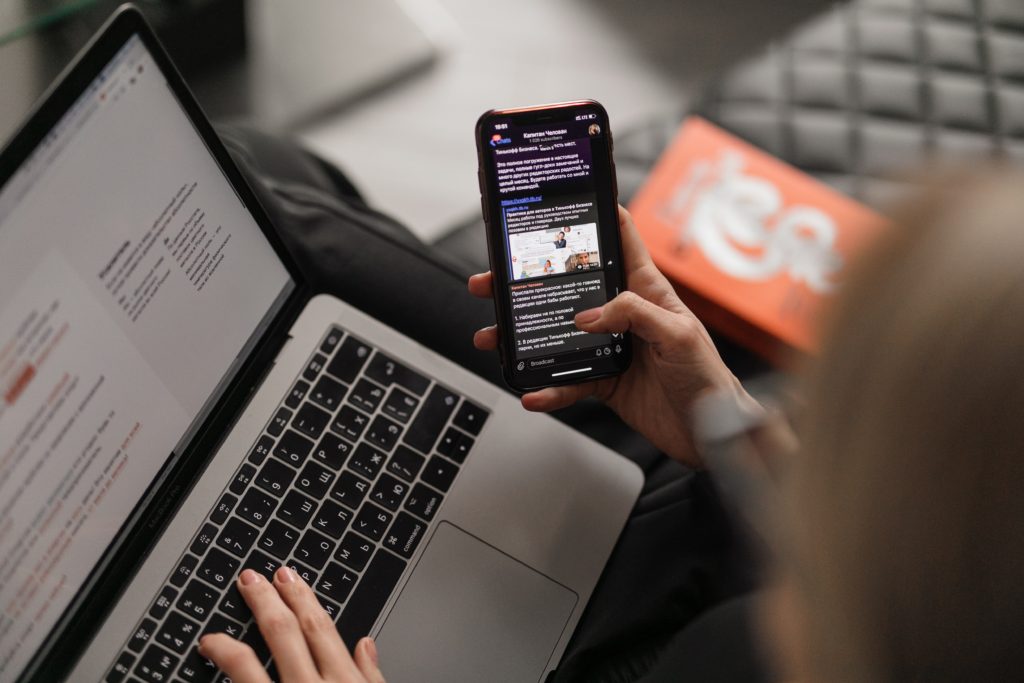We have all been through that phase when our phone is glued to our hand, the outline of our fingers etched perfectly into the creased edges, itching with fear and anticipation when we are no longer holding onto its smooth surface. Or maybe that wasn’t just a phase – maybe that has been a reality your whole life.
Distancing ourselves from our phones is, at the best of times, difficult. Add a global pandemic to the mix and we have a serious problem on our hands.
For the young people of today, there is an overwhelming pressure – or is it comfort? – in constantly having our phones within a two millimetre radius of our skin, whether that’s in our pockets or in our hands. Despite the copious amount of chores and work I have dominating my schedule – sleep, what is that? – I still can’t seem to take my eyes off its glossy case. But why?
According to a recent study at King’s College London, one in four youngsters have a troublesome relationship with their phones. As put by Dr Nicola Kalk of the Institute of Psychiatry, Psychology and Neuroscience:
“Smartphones are here to stay and there is a need to understand the prevalence of problematic smartphone usage.”
It is no surprise then that many of us have this unexplainable magnetic pull enticing us towards a small piece of metal. But this still doesn’t explain why.
As we move towards an increasingly digital age, exacerbated by the Coronavirus pandemic, more and more companies and businesses are making the shift online, expecting their employees to do the same. With Zoom calls and Microsoft Teams now the norm, we are all spending more time than ever either on our phones or with them nearby, just in case we miss that all too important phone call from the local Chinese saying our takeaway is ready.
Now more than ever before, our phones have become the hub of communication and practically life itself. Trapped within the same four walls of our homes for what has seemed like an eternity, smartphones have enabled instant connection and communication with users all across the world.
Whilst this transition has certainly come with its benefits, the repercussions it is having on our mental health border on catastrophic.
Most of my friends have had at least one social media detox since the start of the pandemic, taking a week without constant Instagram notifications featuring puppy videos or Tweets branding the latest comic video made to mock our Prime Minister. But soon enough, when the novelty has worn off, we begin to crave this attention again. It is almost as though our brains have been programmed to require a portion of screen time every hour before our thinking turns to mush and we are forced onto TikTok to learn the latest dance trend.
This is not normal. We should not be feeling this magnetic pull towards an inanimate object. Even as I write this my phone is perched approximately five centimeters away from my hand, ready to grab at a moment’s notice.
So how do we physically (and mentally) distance ourselves from our phones?
Out of sight, out of mind
Placing your phone outside the peripherals of your gaze is a trialled method to prevent obsessive phone usage. If you can’t see it, you won’t think about it. Put it in a box, a drawer, or in another room altogether; get that phone away!
Turn your WiFi off, now!
It’s so easy to place our phone face down on our desks and expect our own level of self-control to prevent our fingers from turning the screen over and sneaking a peak at all of our messages. Turning your WiFi off is a great way to stop this obsessive impulse. With this technique, turning your phone over doesn’t welcome an influx of notifications but rather a blank screen staring back at me, and by the time my fingers have decided they want to turn the WiFi on, my brain has already lost interest.
Put your settings to grey mode
No one likes the colour grey, unless its a new pair of trainers that you bought online the other day. Turning your phone settings to grey mode adopts an unappealing and quite frankly dull appearance, automatically preventing your brain from taking the plunge and entering a wormhole of messages and trending videos featuring animals falling off beds and stealing food from the fridge.
The pandemic has been an incredible struggle in more ways than one; my relationship with my phone being the most disastrous of all. Limiting your screen time is only half of the journey; learning to live apart from your phone exists on a completely different level.
Madeleine Raine
Featured image courtesy of Maxim IIyahov via Unsplash. Image license is available here. This image has in no way been altered.

